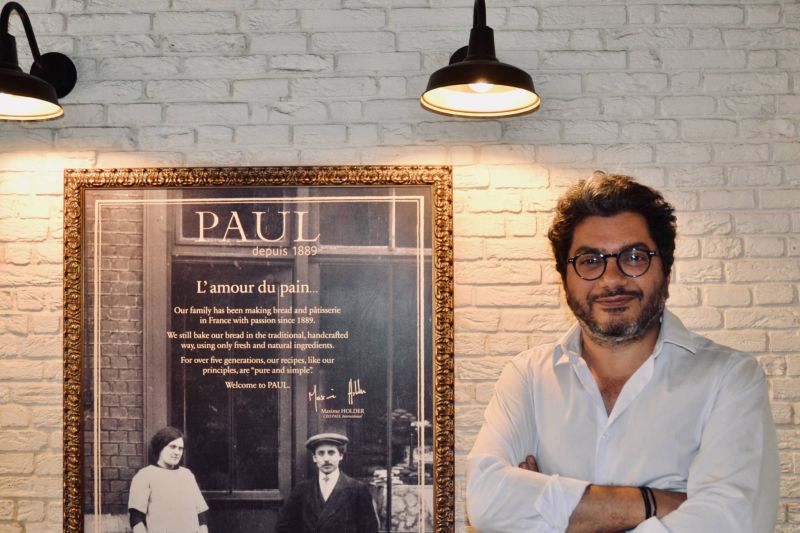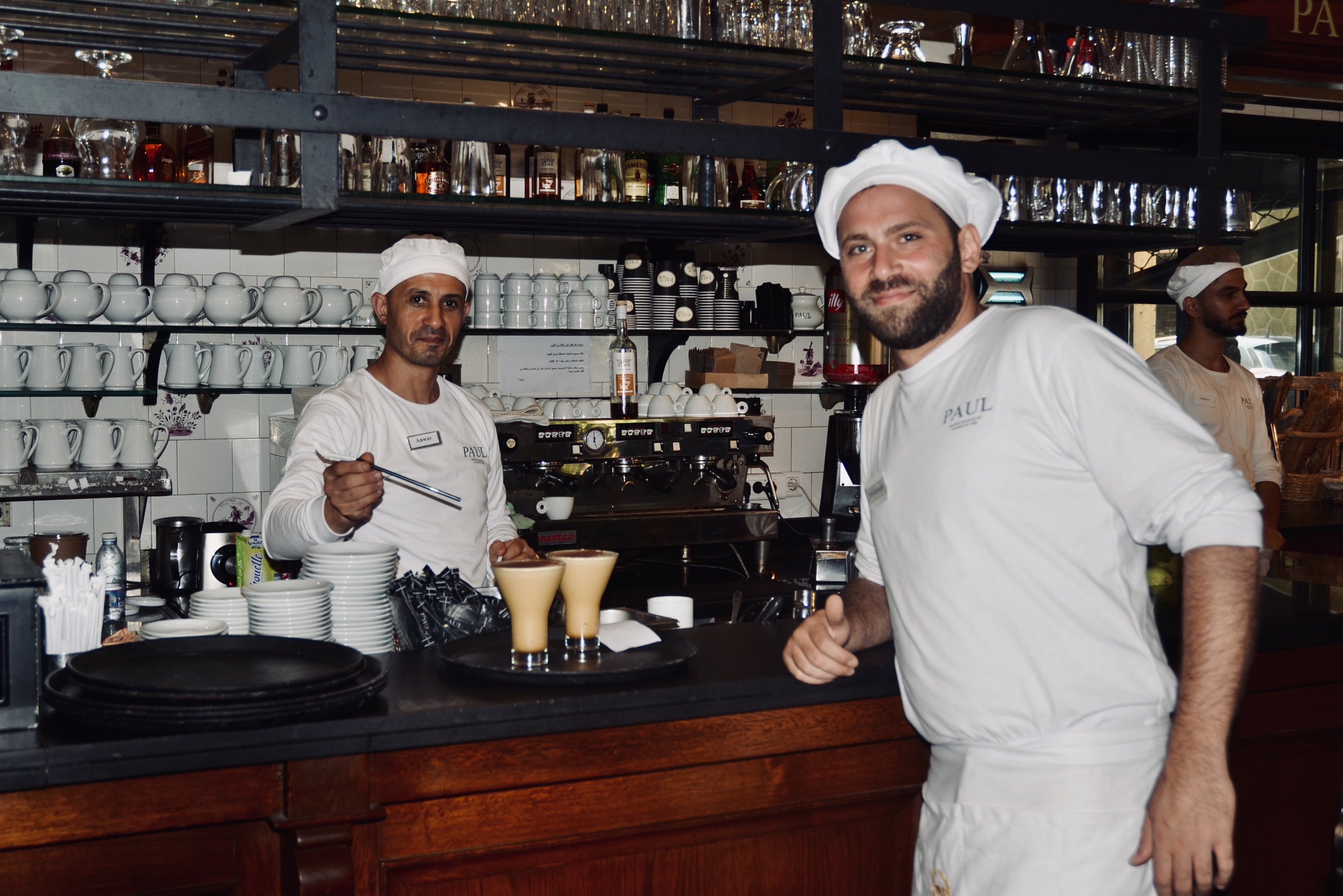
Raif Lteif, standing in Paul, initially opened in 2002 at the forefront of Gemmayzeh. (Credit: Yasmina Abou-Haka/L’Orient Today)
The Aug. 4, 2020, Beirut blast was really “the apocalypse and the death of the Lebanon that we once knew,” in the words of Lebanese journalist Dalal Mawad. For many, there will always be a before and after Aug. 4.
Three years have passed and justice continues to elude us, with promised answers falling into the void.
Amid the lingering shadows, a ray of hope emerges. Beirut, renowned for its Art de Vivre, Art de Recevoir ("Art of living, art of entertaining") is slowly starting to regain its colors, with tourists and expats flocking to the city in droves. This revival is nurtured by the efforts of individuals, organizations and NGOs that have come together to support the city.
This year, at L’Orient Today, we have chosen to shed light on the journeys of those who stayed and fought back, each in their own way. In a series of six profiles, we share with you their stories, struggles and aspirations.
On Aug. 4, 2020, Raif Lteif, managing director of the group behind La Mie Dorée, Paul and Balthazar in Lebanon, was at a friend’s Gemmayzeh apartment when the quarter was demolished by the blast.
“I saw the blast coming, which was really weird. I thought a bombing had occurred because I heard some planes flying over Gemmayzeh an hour before it happened,” Lteif explained. “I never thought it was an explosion.”
Stepping out of the apartment, the streets were completely covered in debris.
Paul Gemmayzeh, which has been standing at the forefront of Gemmayzeh on Gouraud Street, for over two decades now, was in ruins. “All the glass, the kitchen, the ceilings, all the facades were gone,” Lteif recalled. Other locations were also severely damaged. “Balthazar, Paul Foch, La Mie Dorée Sassine and Zaytouna Bay were also no longer functional. The equipment, infrastructure, waterworks and glass had all exploded under the pressure.”
Rebuilding without a state
All of Lteif’s Beirut shops closed their doors in the aftermath of the blast.
“It was so unfair that we decided that we wouldn’t want unfairness to win. We rebuilt everything. It took us a while. It took us a lot of energy. Financially speaking, it was very heavy,” recounted Lteif.
While businesses struggled to survive and navigate the tough socio-economic circumstances, the state did “nothing, nothing at all,” stressed Lteif. Private initiatives, associations and NGOs were the most prominent on the ground in terms of help. “Many NGOs received huge amounts of money and funds to help the residents of Gemmayzeh rebuild and refurbish their buildings. They also did a fantastic job rehabilitating traditional heritage buildings.”
He relied on his own savings and those of the business, since he did not personally receive aid from any NGOs, saying that if it had been offered, he would have refused it. “A business is not like a principal residence. There are priorities. People had to move back into their homes.”
Paul was among the first restaurants to reopen in Gemmayzeh only 30 days after Aug. 4. “Given that we’re the first [business] on Gemmayzeh street [Gouraud Street], the fact that this first store reopened relatively quickly gave people a lot of hope,” Lteif said. “It showed them that Gemmayzeh was very solid and that the neighborhood would persevere.”
 Paul Gemmayzeh regains its activity in a buoyant and warm atmosphere. (Credit: Yasmina Abou-Haka/L’Orient Today)
Paul Gemmayzeh regains its activity in a buoyant and warm atmosphere. (Credit: Yasmina Abou-Haka/L’Orient Today)
Lteif and his team also faced the harsh reality of an uncertain economic climate. “Even when we re-opened our doors, the business was not entirely functional,” he said.
The explosion’s impact on people pushed many to flee the country. “Many of our regular customers emigrated because of the explosion. There was a change in clientele. Since our customers live in the area that was damaged and their homes were damaged or they were affected physically and morally, many of them left,” he continued.
Some employees were badly injured, and many chose to leave, driven by the crippling economic crisis.
Accommodating change
Although three years have passed, the trauma of the explosion continues to be a sensitive subject for many. “Although it may seem like people have put it behind them, practically, it’s not the case,” Lteif explains. “The subject of the explosion comes up quite often in discussion. People who have lived through the tragedy want to talk about it. There’s a sense of frustration because there has been no justice. We don’t even know what happened. Some people have really been affected, and there has been no help.”
Despite everything, Lteif firmly believes that Lebanese people are among “the most resilient people in the world.”
“I think that resilience comes from the fact that Lebanese are used to this kind of incident, not the explosion, but in any case to financial, economic and political difficulties,” he reflected. “They’re used to not being dependent on [the state] and to setting up private initiatives. They don’t need the state. They work without it, and maybe they’re happier that way.”
As Beirut moves forward, Lteif remains hopeful of the city’s future. “I still have hope for Beirut. Beirut is becoming the Beirut it was in 2011 and 2012, when it was booming. Because of the resilience of the Lebanese people, I think Beirut is a capital that will never die.”